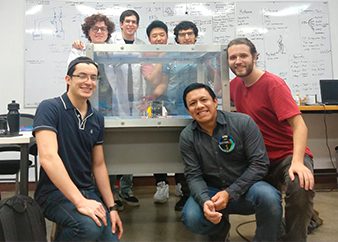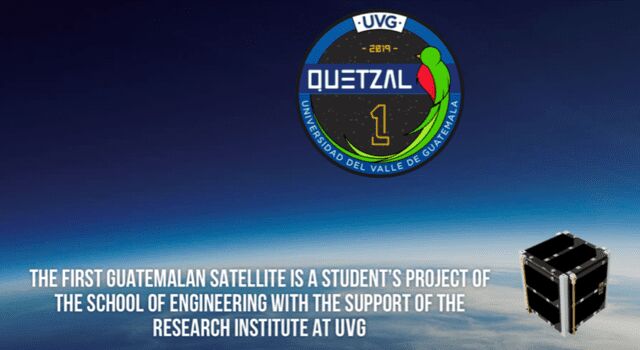
The first-ever Guatemalan satellite, “Quetzal 1,” a 1U-size CubeSat, rocketed from Cape Canaveral to the International Space Station on March 6, 2020 in 2020, and was deployed from the ISS on April 28, 2020. Developed through the collaborative efforts of undergraduates from UVG’s mechanical engineering, mechatronics, electronics, and computer science departments, and supported by UVG faculty, its Research Institute, and international advisors, the miniature satellite’s mission is to collect real-time data on the cyanobacteria — toxic algae — that threatens Guatemala’s treasured Lake Atitlán. Quetzal 1 will be an integral part of the ongoing lake-water monitoring and evaluation conducted through UVG’s Lake Atitlán Research Center.
The project was awarded a free-of-cost launch to and deployment from the International Space Station as worldwide winner of the United Nations Office of Space Affairs and the Japan Aerospace Exploration Agency KiboCUBE program. More than 100 students and volunteers have worked on the project, which aims to inspire and motivate young Guatemalans to study science and technology.

